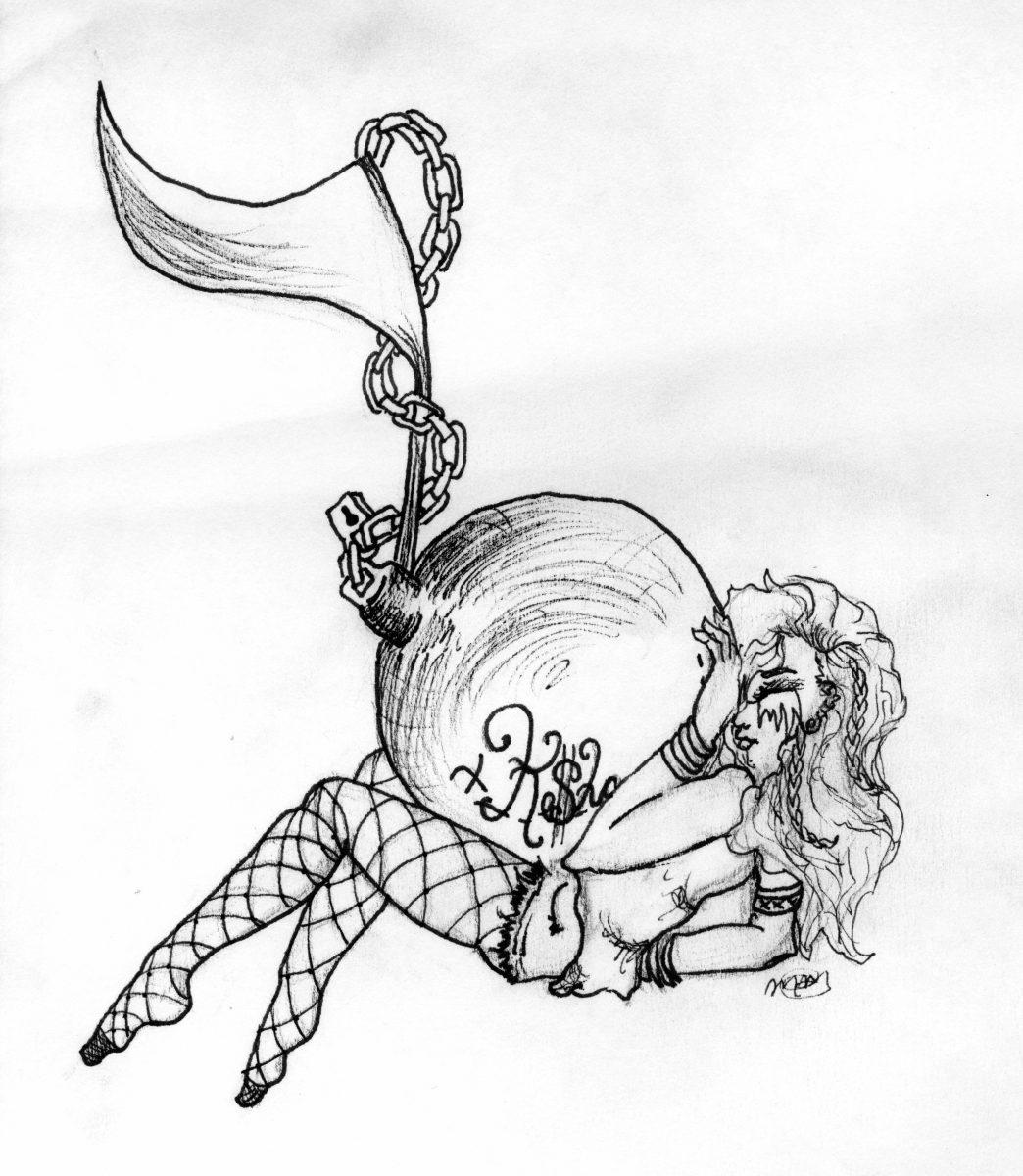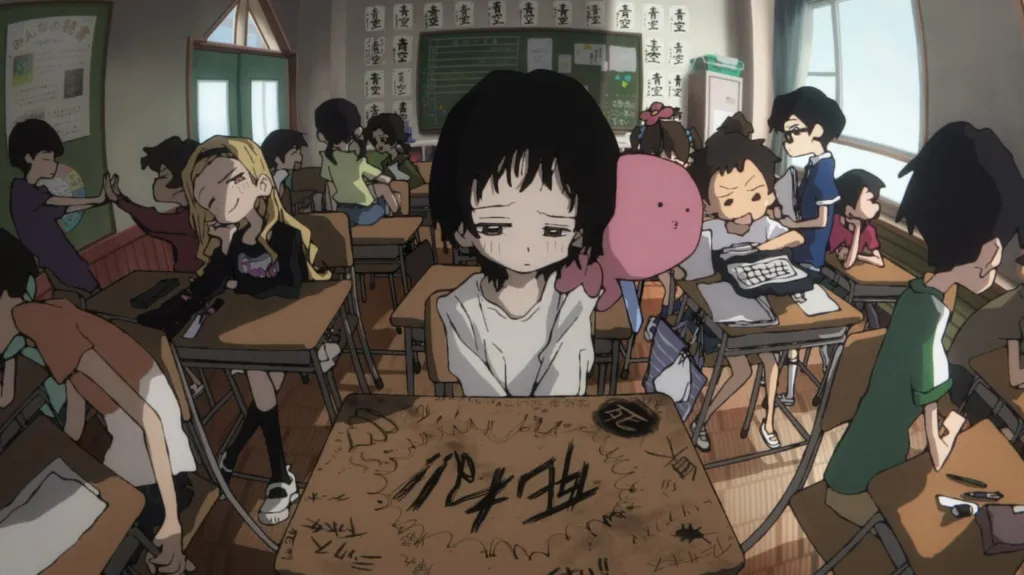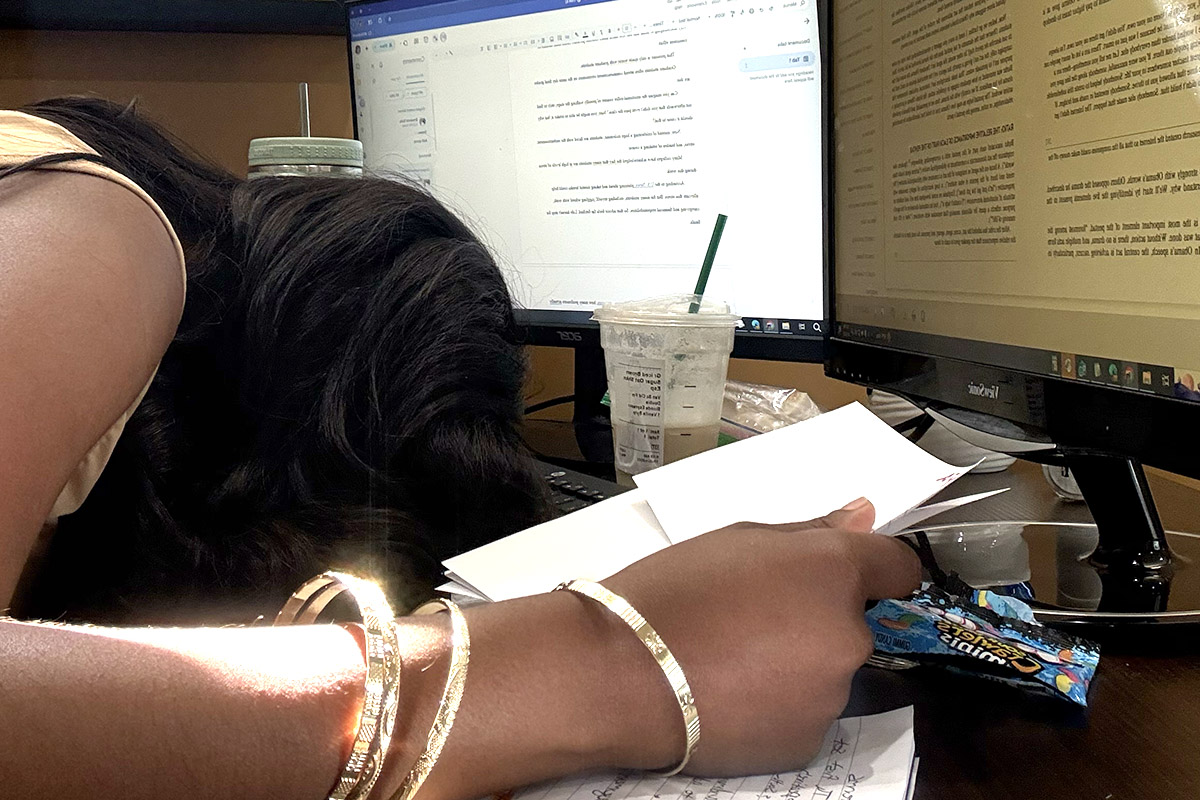By Jakob Wood | Published March 10, 2016
How one ruling proved musicians aren’t people but investments
Kesha Rose Sebert, known simply as Kesha, is in a custody battle not over money or accreditation, but for her freedom.
Over the past few years, Kesha has faded from the billboard charts and people are finally starting to notice. Unlike artists such as Rihanna and Adele, the party hard pop star known for smash hits such as “Tik Tok” and “We R Who We R” isn’t hiding away in a studio laying out a new album for her eagerly waiting fans.
Instead, she’s engaged in a lawsuit battle with her very own producer Lukasz Gottwald, aka Dr. Luke.
What’s most shocking about this court battle is that it isn’t new news. The trending hashtag #freekesha has only picked up within the past few months while the case has been in motion since October 2014. It’s as if someone were trying to keep this case under wraps.
Despite signing a contract agreeing to six more albums with Dr. Luke, Kesha asserts that she will not record any new music with her current producer. The reason for this request is quite simple: she refuses to work with her abuser.
According to Rolling Stone, Kesha depicted multiple accounts of both sexual and psychological abuse inflicted upon her by Dr. Luke over the past 10 years. In response to these allegations, Dr. Luke filed a counter lawsuit against Kesha claiming that the singer was trying to breach their contract through extortion.
The idea that Kesha is making up accounts of sexual assault in order to slip out of a contract promotes misogyny. Denying her “allegations” discourages other rape victims to come forward about their own assaults. This is yet another step backward in the ongoing movement for basic human rights.
USA Today wrote that, at Kesha’s most recent hearing, Supreme Justice Shirley Kornreich denied Kesha a preliminary injunction, stating, “My instinct is to do the commercially reasonable thing.” This ruling prevents her from recording new music without Dr. Luke, her producer and abuser.
Fans and fellow artists have made it clear through Twitter and other social media outlets that they stand with Kesha, refusing to let this case go unnoticed. But despite the army rallied at her side, Kesha is still being punished for speaking up.
This is the truly unnerving aspect of the entire Kesha case. She is being treated like an investment rather than a human being. Sony fears that Kesha’s rape allegations with tarnish the reputation of one of their greatest producers.
Dr. Luke is a major asset to the company having been behind several of the past decade’s biggest hits. Sony has made it clear Kesha means nothing compared to their prized producer. But this isn’t the first time Kesha has been sidelined.
As mentioned by The Atlantic, Kesha supplied the unaccredited female vocals in the chorus of Flo Rida’s 2009 single “Right Round.” This is just one example of how Dr. Luke has complete control over her career as an artist. If he can prevent Kesha from receiving credit on a musical track, who’s stopping him from more personal forms of abuse.
Rape survivors are expected to swallow their pride and report the horrendous act of such an intimate violation, yet when they do, they’re confronted with denial. Telling Kesha that her rape is less important than the success of her rapist is not just a spit in her face but in the face of every other survivor.
In addition, the thing Sony hasn’t realized is, regardless of whether or not Dr. Luke did in fact abuse Kesha, the act of binding her in a contract that cares more about potential profit than the condition of a human being is guilty in itself.
If he were innocent, and if he truly did care about Kesha’s health, he would at least attempt to renegotiate their decade-old contract.
The restrictive control being exercised over Kesha is just as abusive as her testimonies.
However, Kesha’s career is not the only thing at stake here. By allowing Sony to hold onto an “investment,” the court is supporting a misogynistic industry.
The decision of the court is a statement in itself that the prosperity of a company is more important than the rights and health of a woman.
If the social standard is to initially guilt the victim rather than the alleged rapist, people need a wake-up call. Society focuses far too much on teaching people not to get raped rather than teaching them not to rape.
Now, I’m not saying people should drop the precautionary attitude against rape culture; what we need to do is address the fact that people, especially boys, are raised in an environment that excuses their actions as ordinary or acceptable.
Have you ever heard the phrase “boys will be boys”? That statement alone promotes the idea that it’s OK for males to be excessively rowdy, wild or aggressive. That is the root of the problem.
What stems from that is a country that would not only blame a victim but blame them for their assault, all the while supporting their perpetrator.



















